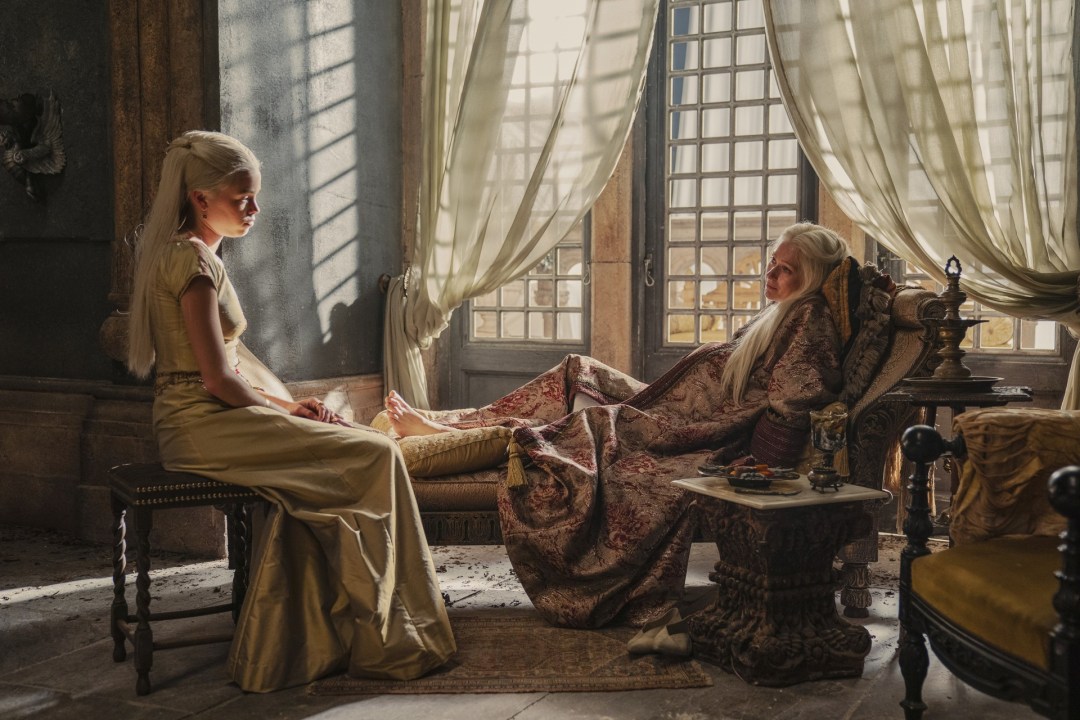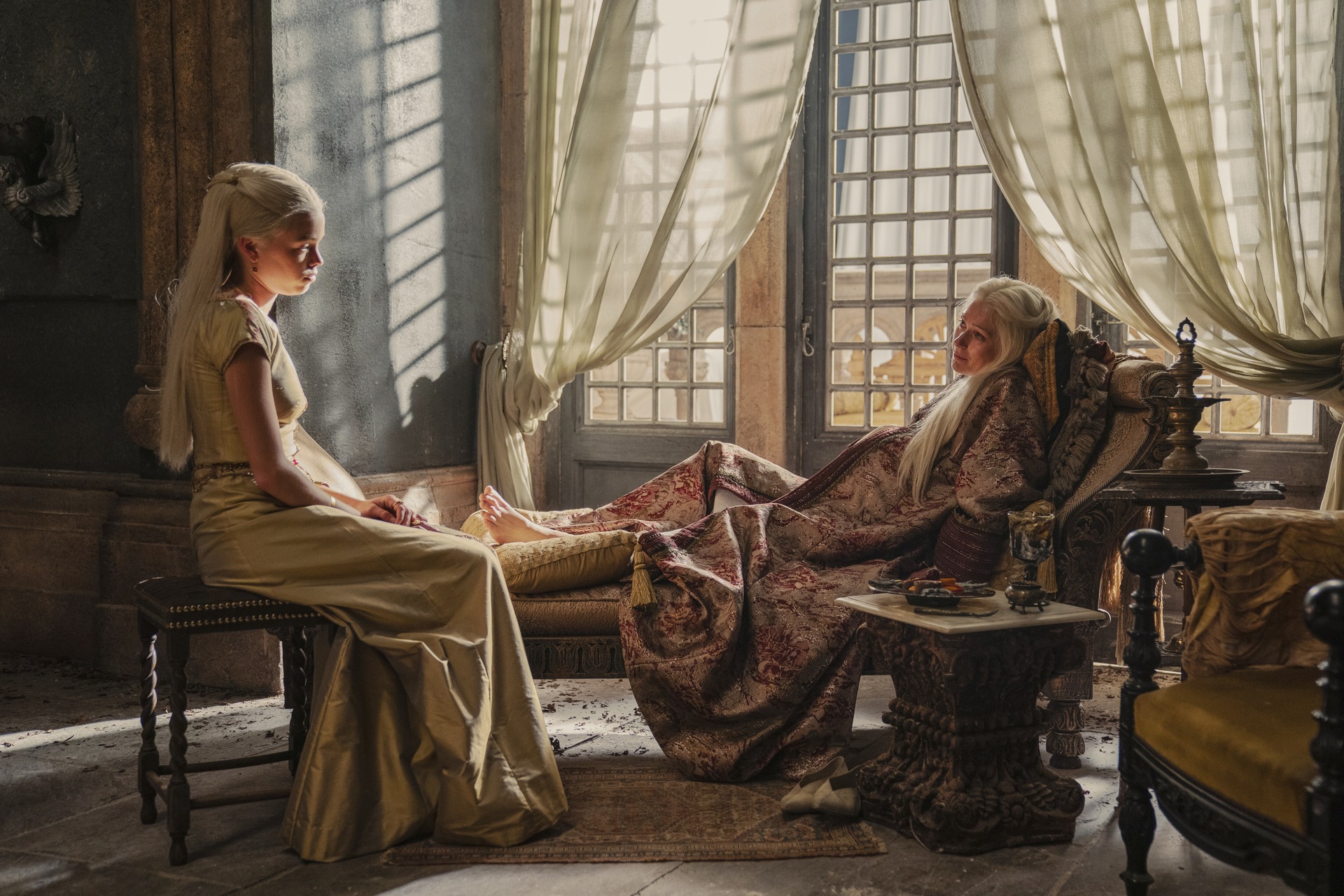The good news – apparently; I haven’t seen it yet so this may just be a false rumour – is that House of the Dragon episode 6 is really exciting, full of incident and drama and intriguing, well-drawn characters. But the bad news, as I can personally testify, is that in order to reach that point you have to wade through five whole hours’ worth of ball-breaking tedium.
Admittedly, even the original Game of Thrones used to do this a bit on occasion: episode after episode of characters talking to apparently little purpose, then suddenly the Red Wedding. But the difference was, you never doubted that the story was going somewhere, and that the whole was underpinned by the mighty creative vision of an obsessive world-builder who had mulled over every detail for eons.
Dragon, on the other hand, feels very much like the late-career coasting of a spent creative force. There’s no hunger or passion or daring. Whenever a character uses the ‘c’ word, you no longer think: ‘Ooh. That’s a bit spicy for mainstream tv’. Rather, you think squirmingly, ‘Oh really? Was that necessary?’
House of the Dragon feels very much like the late-career coasting of a spent creative force. There’s no hunger or passion or daring
It’s the same when, as at the beginning of episode 5, we‘re introduced to a promising new character Rhea Royce only moments later to see her suddenly killed. When this happened to Ned Stark at the beginning of Thrones it was shocking. Now it seems like a cheap trick.
So in part, yes, Dragon is a victim of the success of its predecessor. But that’s still no excuse for nonsense like…well, let’s give a few examples. Ser Criston: since the early scene where he performs well in the lists and earns his place as Princess Rhaenyra’s bodyguard, we’ve learned nothing about his character. He stands around, looking vapidly handsome, but has all the personality of a damp dish cloth and zero interior life or backstory.
Yet suddenly, we are asked to believe that this nonentity is brimming with passion, entitlement and a burning sense of injustice. Like some peevish toyboy who hasn’t understood his place, he is full of suicidally foolish notions – that it would be desirable or even possible for him to run off with the heir to the throne and some how live happily ever after. Also, we are asked to believe that this paragon of knightly devotion, whose only job is to remain loyal unto death to his princess, is suddenly capable of betraying her most intimate secrets to potentially her most dangerous rival, the Queen.
Sure, you could gloss it by arguing that Ser Criston is hysterically emotional and vindictive. But where was the prior evidence for this that would have made his behaviour more plausible and comprehensible? Where were the clues to warn us that this dreary nonentity was in fact so unhinged that he’d end up, during the preamble to his mistress’s royal wedding, beating to death in front of the guests the gay lover of her fiancee? Oh and also, while we’re about it, how come instead of being instantly arrested and thrown into a dungeon he is permitted to amble off to that magical, shiny, faraway tree thing in the courtyard and make a botched attempt at suicide?
This stuff is insulting to the intelligence. What is the point of investing your imagination in a fantastical world if the rules of that fantastical world – and the characters within it – keep shifting violently in order to accord with the racy plotline?
What I gather from the Den of Geek review page is that a lot of Dragon’s difficulties emanate from the source text, Fire & Blood. Unlike the main series of books – A Song of Ice And Fire – this was one of those fans-only cash-ins sketching out some of the early history of the Westeros universe. Its style is much more ambiguous than the main series, with the reader being left to make up their own mind which of the various rumoured incidents are real and which the subject of ugly gossip.
In Fire & Blood, for example, the official version of Rhea Royce’s death is that it occurs in a hunting accident. Maybe her husband Daemon Targaryen was involved, maybe he wasn’t. You can’t blame the TV series for avoiding such ambiguity and laying the blame squarely on Targaryen (Matt Smith) because as a visual medium it has to show not hint. But what you can blame it for, I think, is not taking one look at George RR Martin’s sketchy notes and going ‘Nah. This is a hot mess. I think I’ll pass…’







Comments